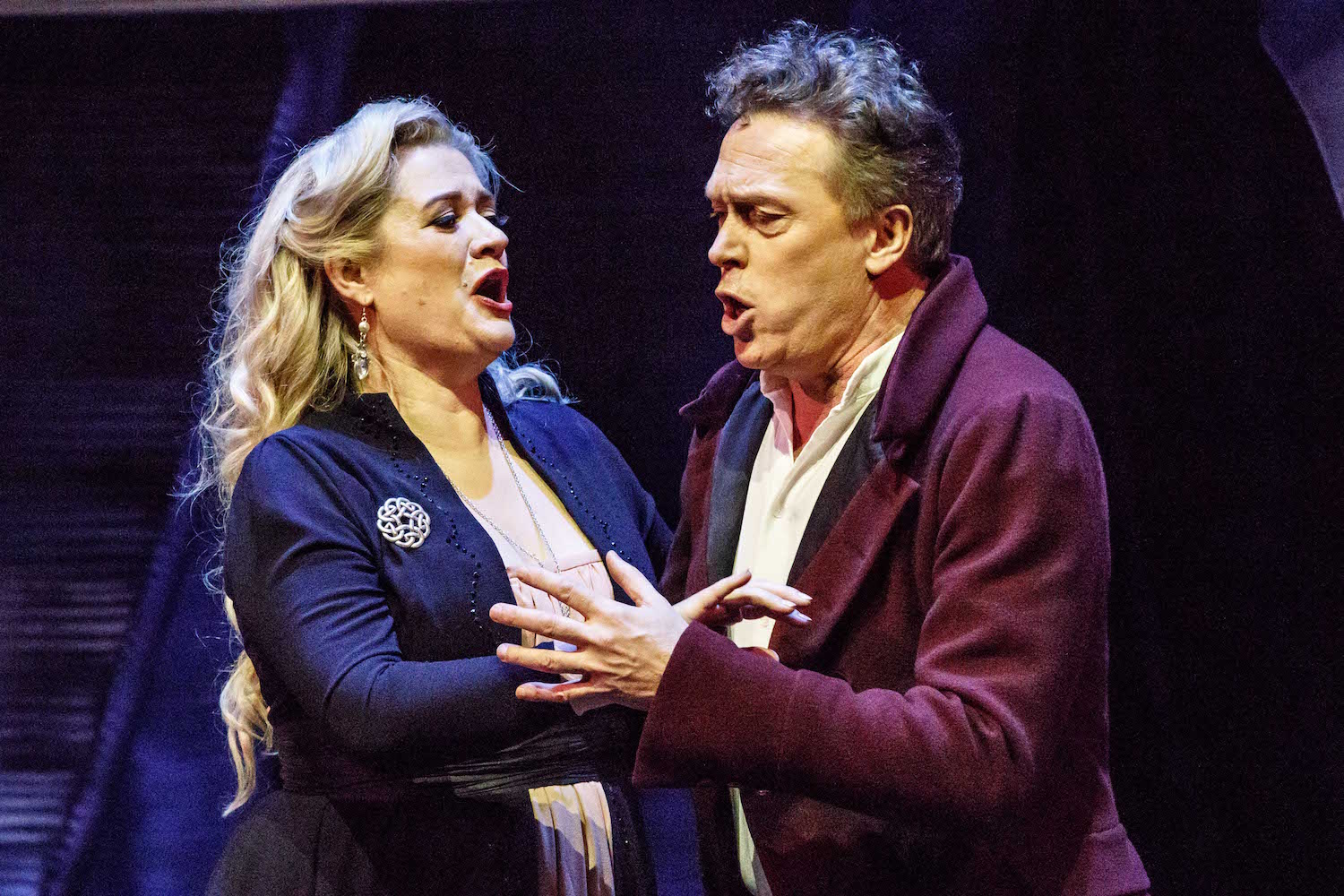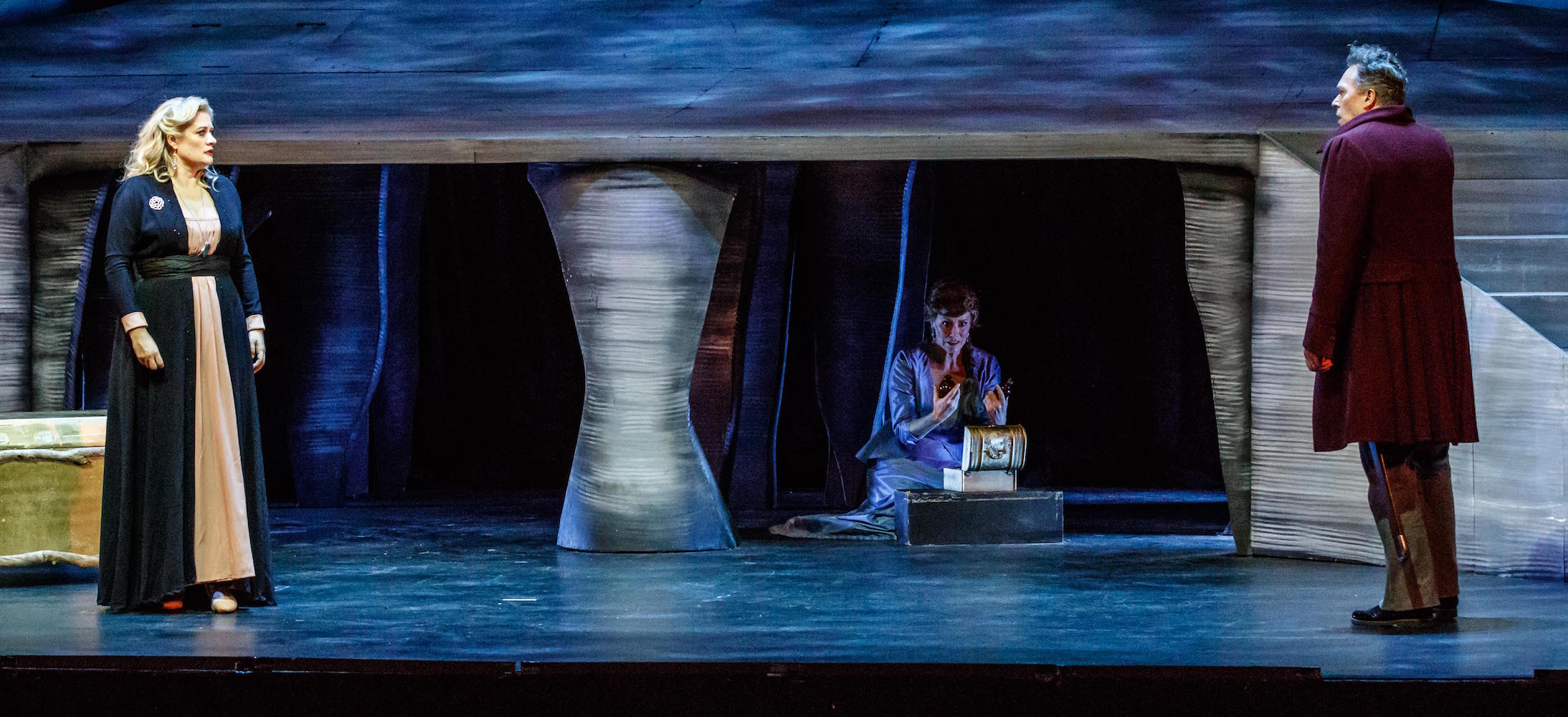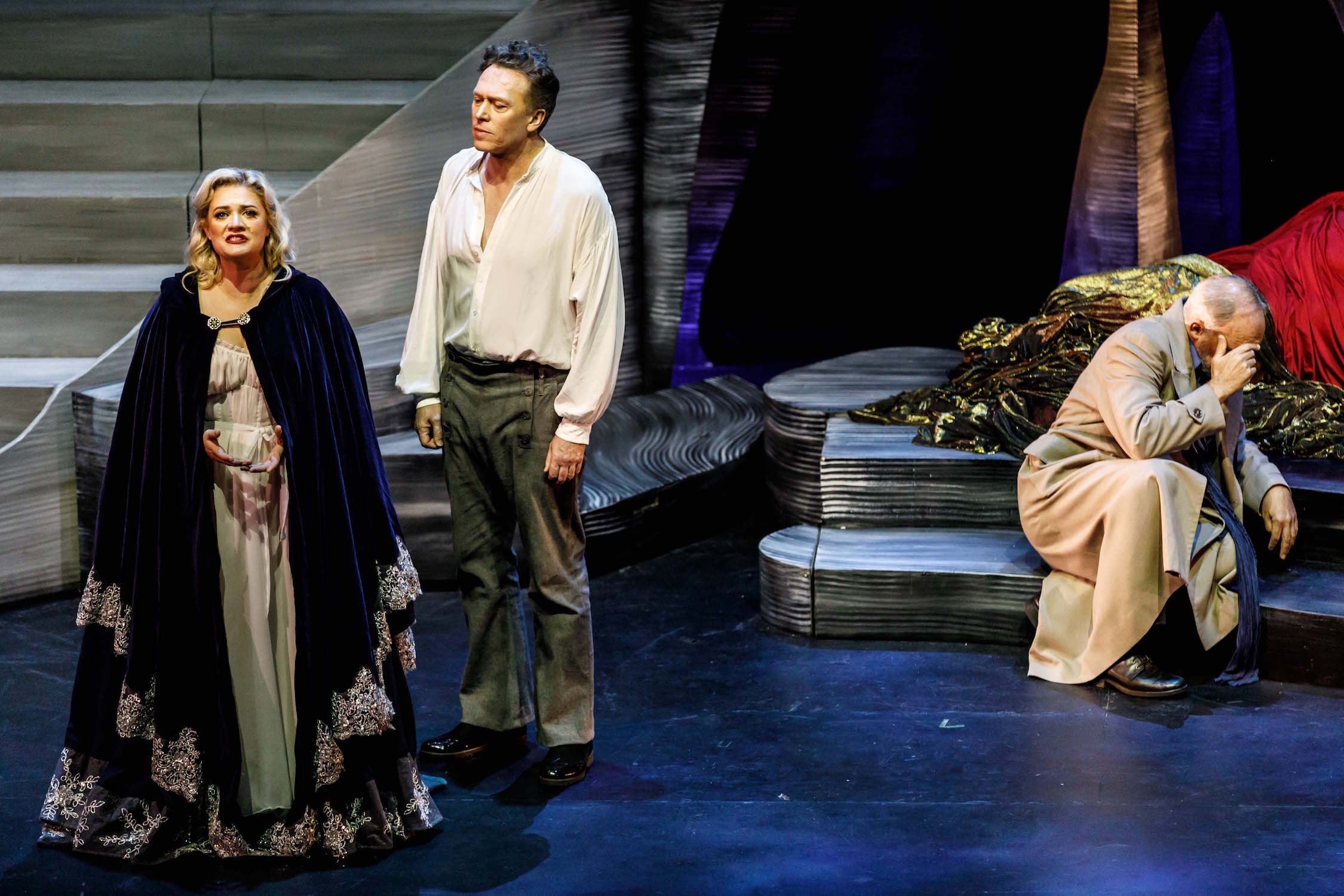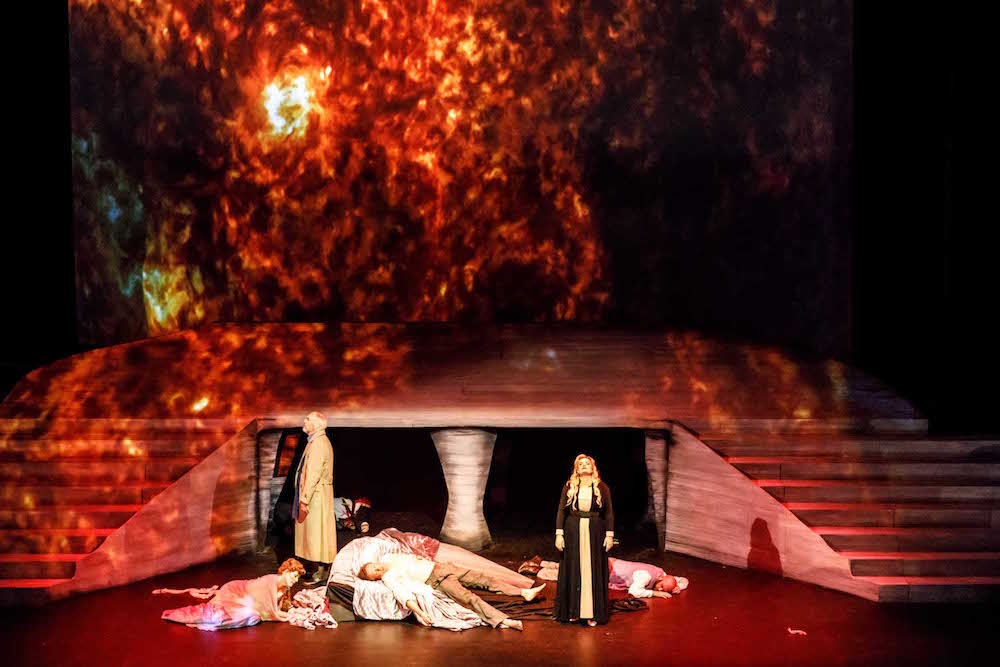Palais Theatre, Melbourne
February 5, 2018
After stepping up to the Regent’s big stage for Lohengrin and Tannhäuser over the past couple of years, Melbourne Opera continues its ambitious Wagnerian program at another of the city’s monumental old theatres, the Palais. The original opening night was cancelled due to the Isolde’s illness, curtailing an already brief season, so there was an even greater weight of expectation for the company’s major offering for 2018. While it underwhelmed theatrically, musically it confirmed Melbourne Opera’s rise, most notably thanks to the superb voice of local soprano Lee Abrahmsen – who surely has a very bright future.
 Lee Abrahmsen and Neal Cooper. Photo: supplied
Lee Abrahmsen and Neal Cooper. Photo: supplied
Tristan und Isolde premiered in Munich in 1865, a decade after Wagner began composing this opera of sex and death that became a harbinger of 20th century music (most notably in the so-called Tristan chord). Inspired by a medieval epic and overlaid with the philosophy of Schopenhauer and Wagner’s own impossible passion for a wealthy patron’s wife, it begins on a ship sailing between Ireland and England.
Irish princess Isolde is being taken to Cornwall to wed King Marke by Tristan, the monarch’s most trusted companion. A reluctant bride who has been deceived by Tristan, she plans a murder-suicide, but her maid Brangäne switches a potion of death for one of love. Isolde and Tristan are irresistibly drawn together, with disastrous results.
 Abrahmsen, Sarah Sweeting and Cooper. Photo: supplied
Abrahmsen, Sarah Sweeting and Cooper. Photo: supplied
Abrahmsen revealed a supple and deceptively powerful voice that beautifully conveyed Isolde’s emotional journey. As Tristan, English tenor Neal Cooper sang with confidence and lovely tone, though was repeatedly overwhelmed by the orchestra. Unfortunately there was no chemistry between them, which is problematic for an opera about fatal passion. Act II’s long love duet, though musically very pleasing, was marred by the pair’s awkward caresses on an uncomfortable looking dais.
Notable among the supporting cast was bass Steven Gallop, who lent a noble manner and voice to Marke, particularly during his Act II aria. As Brangäne, Sarah Sweeting’s mezzo was warm and expressive, while Michael Lampard, in the role of Tristan’s devoted friend Kurwenal, enhanced the poignant beauty of Act III’s lamentation and death with his honeyed baritone. The all-male chorus was vocally solid if a little uncomfortable in the acting department, while the Melbourne Opera Orchestra, under the baton of Anthony Negus, was measured (notwithstanding a few little stumbles) and conveyed pleasing spatial and emotional texture.
 Abrahmsen and Cooper and Steven Gallop. Photo: supplied
Abrahmsen and Cooper and Steven Gallop. Photo: supplied
As with its previous big-stage Wagner epics, Melbourne Opera cannily relied on projections and a large, simple set to fill a space that could easily overwhelm without substantial budget. The company receives no government funding, so relies on imagination and a heart full of hope for every production – that hope, already tested by opening night’s cancellation, must have started draining away when the projections, including surtitles, died during Act II (apparently due to a power surge). The surtitles were offline for several minutes.
Greg Carroll’s set is essentially a sturdy raised platform, with stairs sweeping down at left and right. With the primary action taking place within this structure’s embrace, a little activity on the platform above, and moody projections filling the yawning area behind, it’s a sensible solution to the problems of budget and space. However, no matter how fine the singing, most audiences need a little eye candy during this four-hour opera, which is essentially about emotion rather than narrative and action. In this minimalist production directed by Suzanne Chaundy, what little action there is was underplayed, most notably the brief and very unconvincing swordplay.
 Photo: supplied
Photo: supplied
While dark, slow motion macro video of the sea’s surface projected during Act I was mesmerising, the computer-generated imagery that followed was less successful. Act II’s glowing sea-cave projection had that cheap, chunky digital look about it, while the final act’s misty, nebulous scenery of sea and sky was tedious. Lucy Wilkins’ costumes, which are of no particular time and place, also offer little visual excitement. Except for Isolde’s gorgeously layered and decorated Act II cloak, they are unremarkable and in many cases have probably come from the performers’ wardrobes.
Opera is arguably all about music, particularly singing, which Melbourne Opera’s Tristan and Isolde delivered handsomely. It’s an art form that is the sum of its many and varied parts, however, so this production didn’t entirely satisfy.
Melbourne Opera’s Tristan and Isolde is at the Palais Theatre on February 7 and Robert Blackwood Hall on February 10.











Comments
Log in to join the conversation.